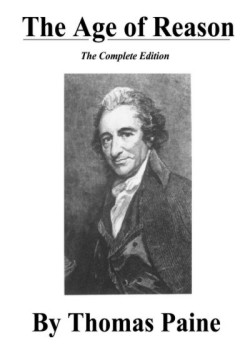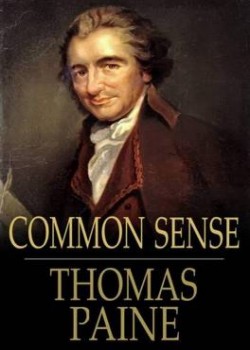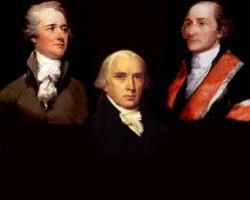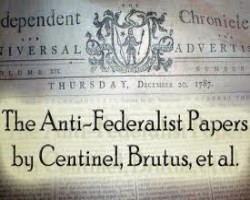HISTORY OF THE COLONIES
CHAPTER XII
PENNSYLVANIA
§ 121. PENNSYLVANIA was originally settled by different detachments of planters under various authorities, Dutch, Swedes, and others, which at different times occupied portions of land on South or Delaware river. The ascendency was finally obtained over these settlements by the governors of New-York, acting under the charter of 1664, to the Duke of York. Chalmers, however, does not scruple to say, that " it is a singular circumstance in the history of this [then] inconsiderable colony, that it seems to have been at all times governed by usurpers, because their titles were defective." It continued in a feeble state, until the celebrated William Penn, in March, 1681, obtained a patent from Charles the Second, by which he became the proprietary of an ample territory, which in honour of his father was called Pennsylvania. The boundaries described in the charter were on the East by Delaware river from twelve miles distance northwards of New-Castle town to the 43d degree of north latitude, if the said river doth extend so far northward; but if not, then by said river so far as it doth extend; and from the head of the river the eastern bounds are to be determined by a meridian line to be drawn from the head of said river unto the said 43d degree of north latitude. The said lands to extend westward five degrees in longitude, to be computed from the said eastern bounds, and the said lands to be bounded on the north by the beginning of the 43d degree of north latitude; and on the south by a circle drawn at twelve miles' distance from New Castle, northward and westward, to the beginning of the 40th degree of northern latitude; and then by a straight line westward to the limits of the longitude above mentioned.
§ 122. The charter constituted Penn the true and absolute proprietary of the territory thus described, (saving to. the crown the sovereignty of the country, and the allegiance of the proprietary and the inhabitants,) to be holden of the crown as of the-castle of Windsor in Berks, in free and common soccage, and not in capite, or by knight service; and erected it into a province and seignory by the name of Pennsylvania. It authorized the proprietary and his heirs and successors to make all laws for raising money and other purposes, with the assent of the freemen of the country, or their deputies assembled for the purpose. But "the same laws were to be consonant to reason, and not repugnant or contrary, but, as near as conveniently may be, agreeable to law and statutes and rights of this our kingdom of England." The laws for the descent and enjoyment of lands, and succession to goods, and of felonies, to be according to the course in England, until altered by the assembly. All laws were to be sent to England within five years after the making of them, and, if disapproved of by the crown within six months, to become null and void. It also authorized the proprietary to appoint judges and other officers; to pardon reprieve criminals; to establish courts of justice, with a right of appeal to the crown from all judgments; to create cities and other corporations; to erect ports, and manors, and courts baron in such manors. Liberty was allowed to subjects to transport themselves and their goods to the province; and to import the products of the province into England; and to export them from thence within one year, the inhabitants observing the acts of navigation, and all other laws in this behalf made. It was further stipulated, that the crown should levy no tax, custom, or imposition upon the inhabitants or their goods, unless by the consent of the proprietary or assembly, "or by act of Parliament in England." Such are the most important clauses of this charter, which has been deemed one of the best drawn of the colonial charters, and which underwent the revision, not merely of the law officers of the crown, but of the then Lord Chief Justice (North) of England. It has been remarked, as a singular omission in this charter, that there is no provision, that the inhabitants and their children shall be deemed British subjects, and entitled to all the liberties and immunities thereof, such a clause being found in every other charter. Chalmers has observed, that the clause was wholly unnecessary, as the allegiance to the crown was reserved; and the common law thence inferred, that all the inhabitants were subjects, and of course were entitled to all the privileges of Englishmen.
§ 123. Penn immediately invited emigration to his province, by holding out concessions of a very liberal nature to all settlers; and under his benign and enlightened policy a foundation was early laid for the establishment of n government and laws, which have been justly celebrated for their moderation, wisdom, and just protection of the rights and liberties of the people. In the introduction to his first frame of government, he lays down this proposition, which was far beyond the general spirit of that age, that "any government is free to the people under it, whatever be the frame, where the laws rule, and the people are a party to those laws; and more than this is tyranny, oligarchy, or confusion." In that frame of government, after providing for the organization of it under the government of a governor, council, and general assembly, chosen by the people, it was declared, that all persons acknowledging one Almighty God, and living peaceably, shall be in no ways molested for their religious persuasion or practice in matters of faith or worship, or compelled to frequent or maintain any religious worship, place, or ministry. Provisions were also made securing the right of trial by jury, and the right to dispose of property by will, attested by two witnesses; making lands in certain cases liable to the payment of debts; giving to seven years' quiet possession the efficacy of an unquestionable title; requiring the registry of grants and conveyances; and declaring, that no taxes should be levied but by a law for that purpose made. Among other things truly honourable to the memory of this great man, is the tender regard and solicitude, which on all occasions he manifested for the rights of the Indians, and the duties of the settlers towards them. They are exhibited in his original plan of concessions, as well as in various other public documents, and were exemplified in his subsequent conduct. In August, 1682, in order to secure his title against adverse claims, he procured a patent from the Duke of York, releasing all his title derived under any of his patents from the crown.
§ 124. It was soon found, that the original frame of government, drawn up before any settlements were made, was ill adapted to the state of things in an infant colony. Accordingly it was laid aside, and a new frame of government was, with the consent of the General Assembly, established in 1683. In 1692 Penn was deprived of the government of Pennsylvania by William and Mary; but it was again restored to him in the succeeding year. A third frame of government was established in 1696. This again was surrendered, and a new final charter of government was, in October, 1701, with the consent of the General Assembly, established, under which the province continued to be governed down to the period of the American Revolution. It provided for full liberty of conscience and worship; and for the right of all persons, professing to believe in Jesus Christ, to serve the government in any capacity. An annual assembly was to be chosen of delegates from each county, and to have the usual legislative authority of other colonial assemblies, and also power to nominate certain persons for office to the governor. The laws were to be subject to the approbation of the governor, who had a council of state to assist him in the government. Provision was made in the same charter, that if the representatives of the province, and territories (meaning by territories the three counties of Delaware) should not agree to join together in legislation, they should be represented. in distinct assemblies.
§ 125. In the legislation of Pennsylvania, early provision was made (in 1683) for the descent and distribution of intestate estates, by which it was to be divided among all the children, the eldest son having a double share; and this provision was never afterwards departed from. Notwithstanding the liberty of conscience recognized in the charters, the legislature seems to have felt itself at liberty to narrow down its protection to persons, who believed in the Trinity, and in the divine inspiration of the Scriptures.







The most important project on this website is "THE WORKS."
This is the place where you can read the words of the founding fathers and those who had a VERY BIG part in the founding of this country.
Not only do we have the Federalist and the Anti-Federalist Papers, but we also have other Constitutional Commentaries that were written shortly after the Constitution was ratified.